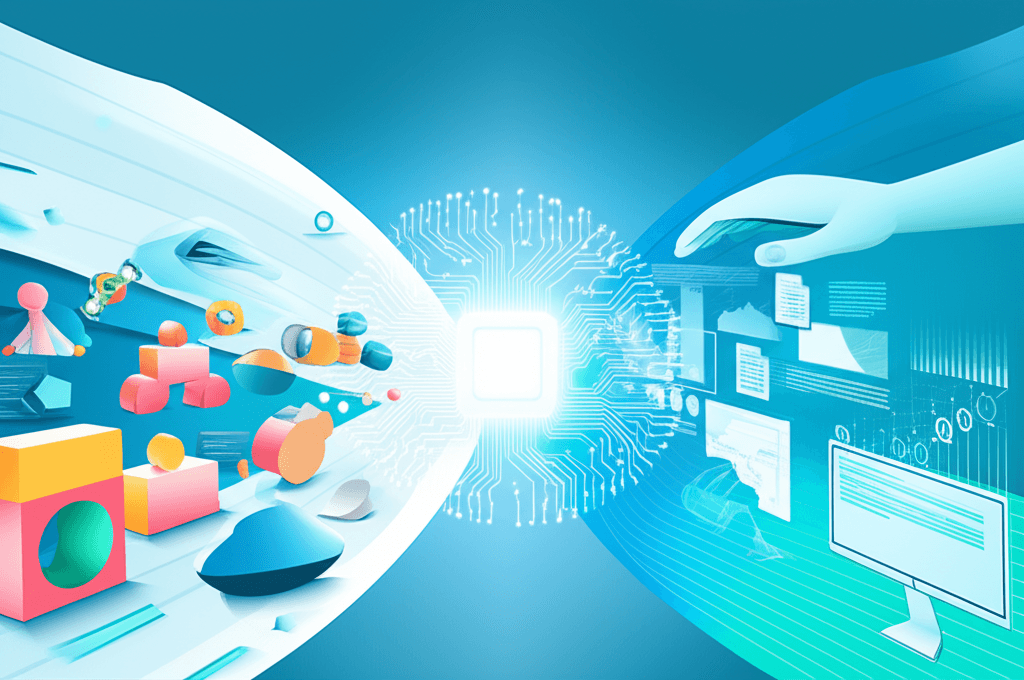Mattel, Google Accelerate AI's Everyday Integration, Reshaping Play and Work
From AI toys to work tools, Mattel and Google accelerate AI integration, shaping daily life and prompting ethical debate.
July 18, 2025

The convergence of artificial intelligence with everyday consumer and business products is accelerating, as evidenced by major new initiatives from toy manufacturer Mattel and technology giant Google. Mattel has announced a strategic partnership with OpenAI to create a new generation of AI-powered toys and games, aiming to blend physical and digital play.[1][2] Simultaneously, Google is doubling down on its commitment to practical AI by embedding its Gemini models more deeply into the Google Workspace suite, focusing on tangible productivity gains for users.[3][4] These developments come as the tech industry pauses to reflect on the progress and ethical considerations of artificial intelligence on AI Appreciation Day, an occasion marked by calls for responsible innovation and human-centric design.[5][6][7]
Toy giant Mattel, the company behind iconic brands like Barbie and Hot Wheels, is embarking on a strategic collaboration with OpenAI to develop AI-powered products and experiences.[8][9] The partnership will combine Mattel's well-known brands with OpenAI's generative AI to create new forms of play.[8] The first product from this collaboration is expected to be announced later in 2025.[10][11] Mattel has stated that it will prioritize "safety, privacy, and security in the products and experiences that come to market."[10][12][11] This emphasis on safety is particularly crucial given the company's previous experience with AI-enabled toys, such as the "Hello Barbie" doll in 2015, which faced criticism over privacy concerns and was eventually discontinued.[10][13] The new initiative aims to learn from past mistakes by focusing on age-appropriate experiences and robust data protection.[8][12] Beyond consumer products, Mattel will also leverage OpenAI's tools, including ChatGPT Enterprise, to enhance its internal operations, from product development and creative ideation to overall efficiency.[14][9][15] This dual approach signifies Mattel's strategy to not only innovate its product line but also to transform its internal creative and business processes.[16] Industry analysts see this move as a way for Mattel to diversify its offerings and stay ahead in a challenging toy market by tapping into the burgeoning AI toy sector, which is projected to grow significantly.[14][17]
In the realm of workplace productivity, Google is pushing forward with a strategy centered on practical AI applications within its Workspace suite.[18][19] The company is integrating its powerful Gemini AI models across its suite of applications, including Gmail, Docs, Sheets, and Meet, to provide users with tangible assistance and streamline workflows.[20][4] Aparna Pappu, Vice President and General Manager of Google Workspace, has emphasized that the goal is to make AI a helpful and ever-present collaborator for users.[21][22] New features include AI-powered assistance for writing emails and documents, summarizing long conversation threads, and even generating audio versions of documents.[20][23][24] In Google Sheets, a feature called "Help me analyze" will guide users through data, identify trends, and create charts, making data analysis more accessible.[25] Looking ahead, Google is prototyping a "virtual Gemini-powered teammate," an AI agent with its own identity and workspace account that can be assigned specific roles and objectives within a team.[21][26] This signals a move towards more agentic AI that can automate complex, multi-step processes, a concept embodied in the new Google Workspace Flows platform.[3][4] This focus on practical, everyday utility is a key differentiator in Google's AI strategy, aiming to provide measurable productivity improvements for both individuals and businesses.[27]
These advancements from Mattel and Google coincide with AI Appreciation Day on July 16, a day dedicated to celebrating the positive achievements of AI while also highlighting the importance of ethical considerations.[5][7] Industry leaders have used the occasion to call for a balanced approach to AI development, emphasizing the need for responsibility, transparency, and human-centric design.[28][6] There's a strong consensus that while AI offers tremendous potential for innovation and efficiency, it must be governed by strong ethical frameworks to ensure it benefits humanity.[6][29] Commentators have stressed that the real power of AI lies in its ability to augment human capabilities, not replace them, and that fostering collaboration between human intelligence and machine precision is key to unlocking its full potential.[29][7] The discussions on AI Appreciation Day also touch upon the necessity of building trust with consumers and being transparent about how AI systems work and use data, a point that is particularly relevant for consumer-facing AI like Mattel's upcoming toys and the data-handling capabilities of Google's Workspace AI.[28][12]
In conclusion, the initiatives from Mattel and Google represent two significant fronts in the ongoing integration of artificial intelligence into daily life. Mattel's venture with OpenAI seeks to redefine the landscape of play, merging the physical and digital to create interactive and personalized experiences, though it must navigate significant safety and privacy hurdles to win consumer trust.[10][13] Meanwhile, Google's pragmatic approach to embedding AI in its Workspace tools aims to deliver immediate and practical value by automating tasks and enhancing productivity in a professional context.[20][30] As the industry commemorates AI Appreciation Day, the overarching sentiment is one of cautious optimism, recognizing the immense potential of AI while underscoring the critical importance of ethical development and responsible implementation to ensure that these powerful technologies ultimately serve to enhance human experience and capability.[6][7] The success of these and future AI endeavors will likely depend on their ability to innovate while maintaining a strong commitment to safety, privacy, and human values.
Sources
[3]
[4]
[8]
[10]
[12]
[13]
[14]
[16]
[17]
[18]
[19]
[20]
[21]
[22]
[23]
[24]
[25]
[26]
[27]
[30]